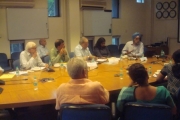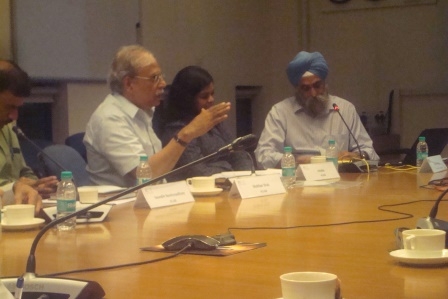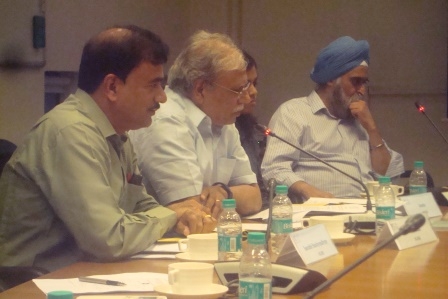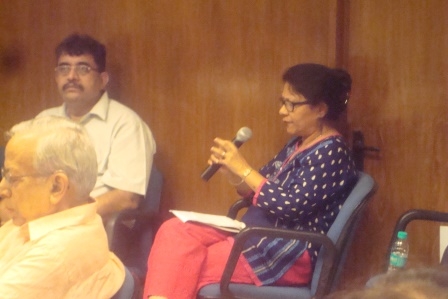At a seminar held at NCAER, Nirvikar Singh, Distinguished Professor of Economics at the University of California, Santa Cruz, reviewed and analyzed the three initiatives of the Government of India, namely, Digital India, Start-up India and Make in India in terms of the needed sectoral economic reforms, including in education and skilling, labor markets, finance, infrastructure, urbanization, taxation, trade and FDI, intellectual property rights and government regulatory approaches. He examined the extent to which these dimensions of reform are needed, individually and in combination with each other, for the success of the three initiatives, which themselves have many overlaps in objectives. Attended by research fellows, staff and other invitees, this session provided an opportunity for a lot interaction and discussions during the Q&A that followed Professor Singh’s presentation. Dr Saurabh Bandyopadhyay and Dr Anusha, Associate Fellows, NCAER, also presented their viewpoints as discussants for this seminar.
Nirvikar Singh is Distinguished Professor of Economics and Sarbjit Singh Aurora Chair of Sikh and Punjabi Studies at the University of California, Santa Cruz, where he also directs the Center for Analytical Finance. He has been a member of the Advisory Group to the Finance Minister of India on G-20 matters, and has served as Consultant to the Chief Economic Adviser, Ministry of Finance, Government of India. He is a member of NCAER’s India Policy Forum Research Panel. Professor Singh’s current research topics include entrepreneurship, information technology and development, electronic commerce, business strategy, political economy, federalism, economic growth and the Indian economy. He has authored over 100 research papers and co-authored or edited several books. He has also served as an advisor for several start-ups and knowledge services firms in Silicon Valley and in India. He received his PhD from the University of California, Berkeley.
Professor Nirvikar Singh previously delivered a talk on “Digital India Campaign-Scope and Challenges” at NCAER on July 23, 2015










